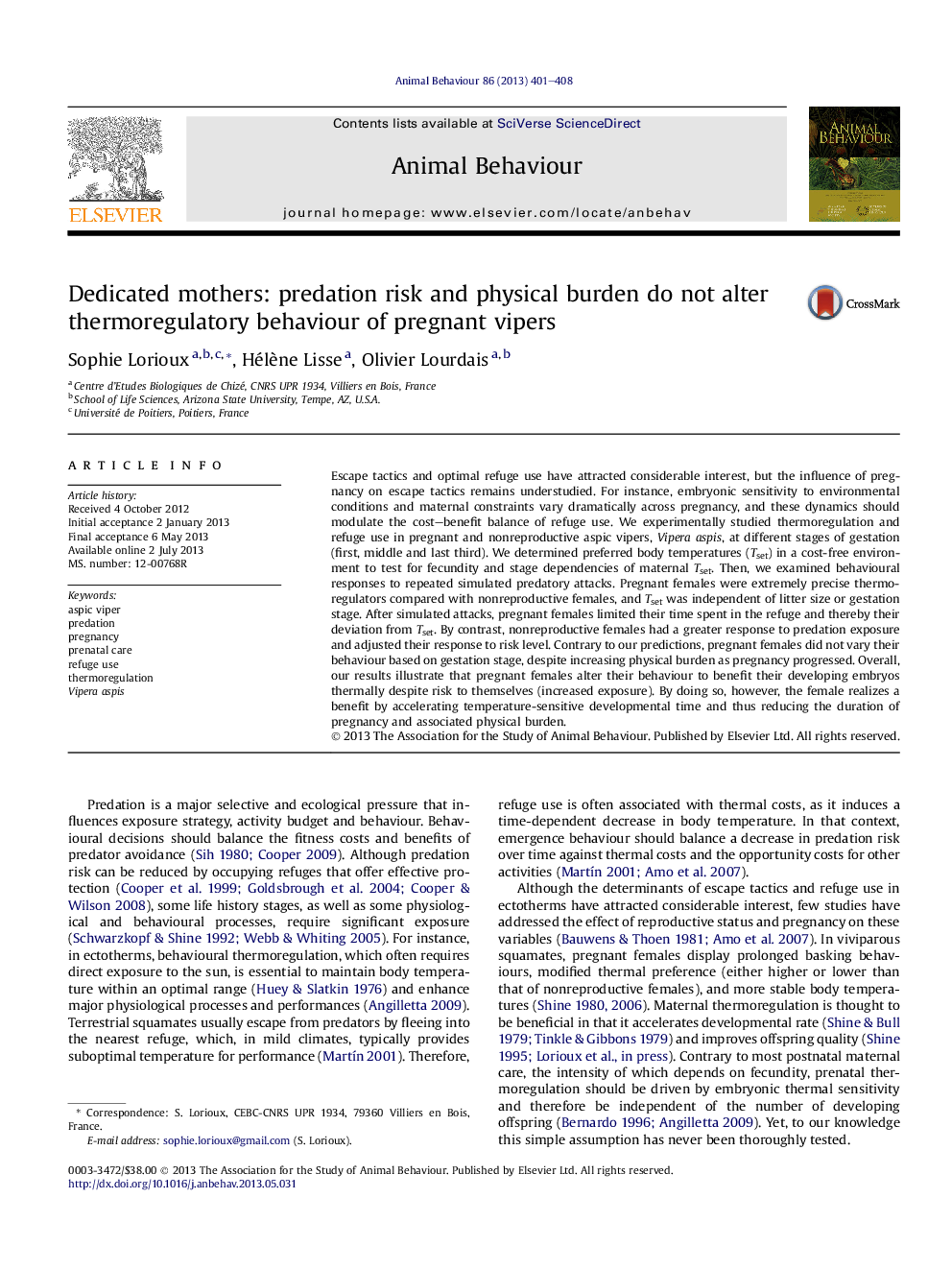| کد مقاله | کد نشریه | سال انتشار | مقاله انگلیسی | نسخه تمام متن |
|---|---|---|---|---|
| 2416606 | 1104282 | 2013 | 8 صفحه PDF | دانلود رایگان |

• We studied thermoregulatory behaviour in pregnant and nonreproductive vipers.
• We determined preferred temperature and examined responses to predatory attacks.
• Pregnancy strongly affected activity budget and response to a predator attack.
• Tset was independent of litter size and stage of gestation.
• This underlines the extent of maternal dedication towards thermoregulation.
Escape tactics and optimal refuge use have attracted considerable interest, but the influence of pregnancy on escape tactics remains understudied. For instance, embryonic sensitivity to environmental conditions and maternal constraints vary dramatically across pregnancy, and these dynamics should modulate the cost–benefit balance of refuge use. We experimentally studied thermoregulation and refuge use in pregnant and nonreproductive aspic vipers, Vipera aspis, at different stages of gestation (first, middle and last third). We determined preferred body temperatures (Tset) in a cost-free environment to test for fecundity and stage dependencies of maternal Tset. Then, we examined behavioural responses to repeated simulated predatory attacks. Pregnant females were extremely precise thermoregulators compared with nonreproductive females, and Tset was independent of litter size or gestation stage. After simulated attacks, pregnant females limited their time spent in the refuge and thereby their deviation from Tset. By contrast, nonreproductive females had a greater response to predation exposure and adjusted their response to risk level. Contrary to our predictions, pregnant females did not vary their behaviour based on gestation stage, despite increasing physical burden as pregnancy progressed. Overall, our results illustrate that pregnant females alter their behaviour to benefit their developing embryos thermally despite risk to themselves (increased exposure). By doing so, however, the female realizes a benefit by accelerating temperature-sensitive developmental time and thus reducing the duration of pregnancy and associated physical burden.
Journal: Animal Behaviour - Volume 86, Issue 2, August 2013, Pages 401–408